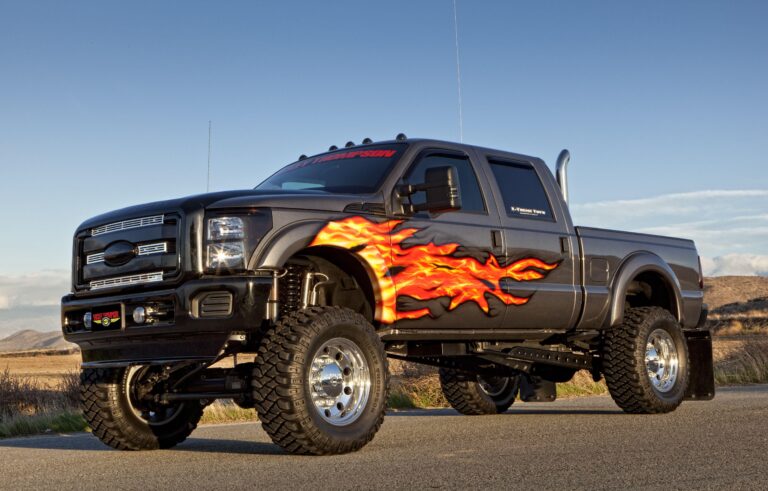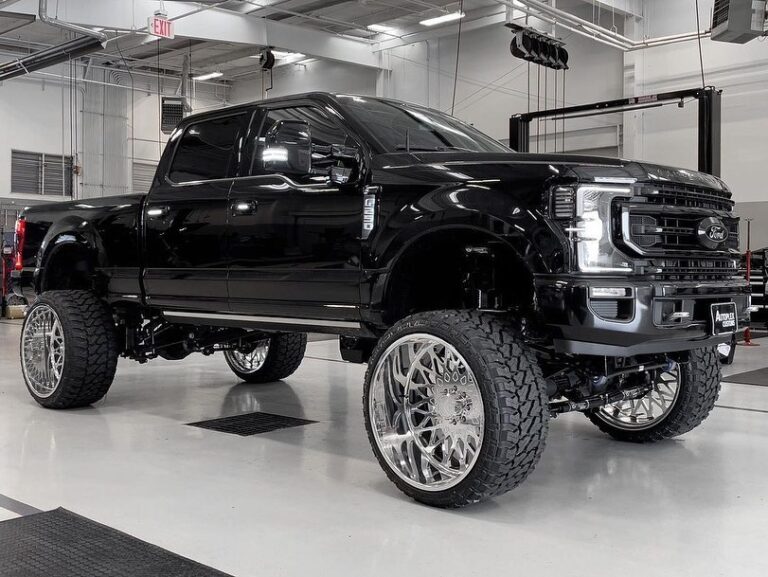Best Starter Trucking Company: Your Roadmap to a Successful Driving Career
Best Starter Trucking Company: Your Roadmap to a Successful Driving Career cars.truckstrend.com
Embarking on a career as a professional truck driver is an exciting prospect, offering freedom, good earning potential, and the chance to see the country. However, the initial journey can feel daunting, especially when it comes to choosing your first employer. The "Best Starter Trucking Company" isn’t a single, universally agreed-upon entity; rather, it’s the company that best equips new drivers with the foundational skills, support, and opportunities needed to thrive in the industry.
Choosing the right first trucking company is paramount. It sets the tone for your entire career, influencing your training quality, initial earning potential, safety habits, and overall job satisfaction. A supportive starter company provides comprehensive training, modern equipment, a clear path for progression, and a culture that values its drivers. Conversely, a poor choice can lead to frustration, burnout, and a premature exit from the industry. This comprehensive guide will help you navigate the landscape of starter-friendly trucking companies, empowering you to make an informed decision that paves the way for a long and prosperous career on the road.
Best Starter Trucking Company: Your Roadmap to a Successful Driving Career
What Makes a Trucking Company "Starter-Friendly"?
Not all trucking companies are created equal, especially when viewed through the lens of a new driver. A truly "starter-friendly" company goes beyond just offering a job; it invests in its new hires, recognizing that their success is the company’s success. Here are the core attributes that define a great starting point for aspiring truckers:
- Comprehensive Training Programs: This is often the most critical factor. Many starter companies offer CDL sponsorship or paid CDL training programs for those without a license. For new CDL holders, they provide extensive paid orientation and over-the-road (OTR) training with experienced mentors or trainers, ensuring new drivers gain practical skills and confidence before hitting the road solo.
- Supportive Company Culture: New drivers need a strong support system. This includes accessible dispatchers, helpful safety teams, and responsive HR departments. A positive culture fosters an environment where new drivers feel comfortable asking questions, reporting issues, and seeking guidance without fear of reprisal.
- Modern and Well-Maintained Equipment: Driving reliable, newer trucks not only enhances safety but also reduces stress and downtime. Starter companies that invest in their fleet demonstrate a commitment to their drivers’ well-being and productivity.
- Clear Pay Structure and Benefits: While pay for new drivers may start lower, a good starter company will have a transparent pay scale, potential for performance bonuses, and a path for pay increases as experience grows. Robust benefits packages (health insurance, 401k, paid time off) are also crucial.
- Diverse Freight Options & Lanes: Companies offering various types of freight (dry van, reefer, flatbed) and operating regions (OTR, regional, dedicated) allow new drivers to explore different aspects of trucking and find their niche without having to switch companies immediately.
- Strong Safety Record: A company’s commitment to safety is non-negotiable. Look for carriers with good CSA scores and a reputation for prioritizing driver and public safety through regular training, equipment maintenance, and adherence to regulations.
- Opportunities for Growth: The best starter companies offer paths for drivers to advance their careers, whether it’s moving into dedicated routes, becoming a trainer, or even transitioning to an owner-operator model.

Top Contenders: Companies Often Recommended for New Drivers
While personal experiences vary, several large carriers have built reputations for being excellent starting points for new truck drivers due to their comprehensive training programs and supportive structures. It’s important to research each company thoroughly, as their offerings and requirements can change.
- Swift Transportation: As one of the largest carriers in North America, Swift is a common entry point for many. They offer CDL training schools across the country, a robust orientation program, and diverse freight options (dry van, reefer, flatbed, intermodal). They have a strong presence in all 48 states.
- Werner Enterprises: Another industry giant, Werner provides extensive training programs for new CDL holders, including paid orientation and a structured training period with an experienced driver. They offer various divisions and routes, including OTR, regional, and dedicated.
- Schneider: Known for its iconic orange trucks and strong safety culture, Schneider offers comprehensive training for new drivers, including a paid orientation and an apprenticeship program. They provide diverse freight types (dry van, tanker, intermodal) and a variety of home time options.
- CRST Expedited: CRST is well-known for its CDL sponsorship program, which often gets drivers on the road quickly. They primarily focus on team driving, which can be a good way for new drivers to accumulate miles and earn quickly, though it requires a specific personality type.
- Roehl Transport: Roehl is highly regarded for its "Get Your CDL" program, which provides paid CDL training. They offer diverse divisions (dry van, reefer, flatbed, curtainside) and emphasize safety and driver support, with a focus on practical training.
- Prime Inc.: A large refrigerated (reefer) and flatbed carrier, Prime offers a comprehensive training program, including CDL training and a mentorship phase. They are known for their modern equipment and structured path for new drivers.
Remember, while these companies are popular choices, individual experiences can differ greatly. Always speak to current and former drivers, read reviews, and ask detailed questions during the application process.
Key Factors to Consider When Choosing Your First Company
Making an informed decision requires careful evaluation of several critical factors beyond just the company’s reputation.
Training & Mentorship Quality
- Paid Training: Is orientation paid? Is the over-the-road training period compensated?
- Training Duration: How long is the training program? Is it sufficient for you to feel confident?
- Trainer Quality: What is the company’s vetting process for trainers? Is there a system for addressing issues with trainers?
- Mentorship Programs: Does the company offer ongoing support or mentorship once you go solo?
Pay Structure & Earning Potential
- CPM (Cents Per Mile): What is the starting CPM for new drivers? How does it increase with experience?
- Guaranteed Minimums: Does the company offer a guaranteed weekly minimum pay, especially during slow periods?
- Bonuses: Are there performance, safety, or fuel efficiency bonuses?
- Accessorial Pay: How are you paid for detention, layover, stop-offs, and breakdown time? This can significantly impact your take-home pay.
Home Time Expectations
- Frequency: How often can you expect to be home (e.g., weekly, bi-weekly, monthly)?
- Consistency: Is home time consistent and reliable, or does it often get delayed?
- Type of Route: OTR (Over-the-Road) typically means less frequent home time than Regional or Dedicated routes.
Equipment & Maintenance
- Truck Age & Model: Are the trucks relatively new? What models do they use?
- Maintenance Program: How are breakdowns handled? Is there 24/7 roadside assistance?
- Amenities: Do trucks have APUs, inverters, refrigerators, or other comforts?
Company Culture & Support
- Dispatcher Relationship: How are dispatchers assigned? Are they supportive and easy to communicate with?
- Safety Department: Is safety prioritized? Do they provide regular training and support?
- HR & Driver Relations: Are company policies clear? Is there a good channel for driver concerns?
Freight Type & Lanes
- Dry Van, Reefer, Flatbed, Tanker, etc.: Which type of freight interests you? Each has its own demands.
- OTR, Regional, Dedicated: OTR offers more miles but less home time. Regional offers more consistent home time in a specific area. Dedicated routes offer regular routes and home time but can be harder to get as a new driver.
Benefits Package
- Health Insurance: Medical, dental, vision coverage. What are the premiums, deductibles, and co-pays?
- Retirement Plans: Does the company offer a 401k or other retirement savings plans? Is there a company match?
- Paid Time Off (PTO): How much PTO do you accrue, and when can you start using it?
Contractual Obligations
- Training Contract: If the company pays for your CDL, is there a contract requiring you to stay for a certain period (e.g., 6 months, 1 year, 2 years)? What are the penalties for breaking it?
- Lease-Purchase Programs: Be extremely cautious with these as a new driver. They often come with significant risks.
The Application and Onboarding Process
Once you’ve narrowed down your choices, here’s what to expect:
- Research & Apply: Visit company websites, read reviews, and submit online applications. Be honest and thorough.
- Phone Screening/Interview: Recruiters will call to discuss your qualifications, answer initial questions, and explain their programs.
- Background Checks: Companies will run MVR (Motor Vehicle Record) checks, criminal background checks, and employment verification. Ensure your driving record is clean.
- DOT Physical & Drug Test: You’ll need to pass a Department of Transportation (DOT) physical and a pre-employment drug screen (including hair follicle tests for many major carriers).
- Orientation: This is usually a paid, multi-day session at a company facility. You’ll complete paperwork, learn company policies, take driving tests, and get assigned to a trainer.
- Behind-the-Wheel Training: You’ll spend weeks or months on the road with an experienced company trainer, learning practical skills, route planning, logbook management, and real-world trucking scenarios.
- Going Solo: After successful completion of training, you’ll be assigned your own truck and begin your solo career.
Tips for Success as a New Driver
Your first year in trucking is a steep learning curve. Here’s how to make the most of it:
- Be a Sponge: Ask questions, listen to your trainer, and be open to learning constantly.
- Communicate Effectively: Keep dispatch informed about your progress, delays, or issues. Clear communication is key.
- Prioritize Safety: Always. No load or deadline is worth compromising safety. Follow all rules and regulations.
- Manage Your Time & Fatigue: Learn to manage your hours of service (HOS) effectively. Get adequate rest.
- Master Trip Planning: Learn to plan your routes, fuel stops, and rest areas efficiently.
- Understand Your Paychecks: Review your pay statements carefully to ensure you’re compensated correctly for all miles and accessorials.
- Stay Healthy: Eat well, exercise when possible, and stay hydrated. Long stretches on the road can take a toll.
- Network: Connect with other drivers. They can be a great source of advice and support.
- Save Money: Your income might fluctuate initially. Build an emergency fund.
Potential Challenges and How to Overcome Them
New drivers face unique challenges, but with preparation, they are manageable.
- Homesickness/Loneliness: Trucking can be isolating. Stay connected with family and friends through calls and video chats. Find hobbies that can be done on the road.
- Fatigue: The demands of HOS and irregular sleep can lead to fatigue. Prioritize sleep, take short breaks, and learn to recognize your body’s signals.
- Navigating Unfamiliar Areas: Use reliable GPS, consult paper maps, and don’t be afraid to pull over and re-evaluate if unsure. Pre-trip planning is crucial.
- Mechanical Issues: Trucks break down. Learn basic troubleshooting, know company procedures for reporting issues, and stay calm.
- Dealing with Difficult Situations: From rude shippers/receivers to traffic incidents, maintain professionalism and follow company protocols.
- Financial Management: Unexpected expenses can arise. Stick to a budget and save for contingencies.
- Burnout: Long hours and repetitive tasks can lead to burnout. Take your home time seriously, find ways to relax, and remember your "why."
Key Offerings for New Drivers: A Comparison Table
This table outlines common features you’ll find at starter-friendly trucking companies. "Yes" indicates that this is generally offered or a strong focus for the type of company.
| Feature / Company Type | Large National Carrier (e.g., Swift, Werner, Schneider) | Mid-Size Regional Carrier | Specialized Carrier (e.g., Tanker, Flatbed) |
|---|---|---|---|
| CDL Training/Sponsorship | Yes (Often extensive programs) | Sometimes (More selective) | Less Common (May prefer experienced) |
| Paid Orientation | Yes (Standard practice) | Yes | Yes |
| Paid OTR Training | Yes (Structured, 4-8+ weeks typical) | Yes | Yes (Highly specialized) |
| Modern Equipment (Avg. Age) | Yes (Fleet turnover every 2-5 years) | Mixed (Varies by company) | Often Yes (Specific equipment needs) |
| Comprehensive Benefits | Yes (Health, Dental, Vision, 401k) | Varies (Often good) | Varies (Can be very competitive) |
| Dedicated Routes for New Drivers | Sometimes (After initial OTR experience) | Yes (More common) | Less Common (Requires specific skills) |
| Regional Routes for New Drivers | Yes (Available in many areas) | Yes (Primary focus) | Sometimes |
| OTR Routes for New Drivers | Yes (Primary starting point for many) | Less Common | Yes (Common for specialized OTR) |
| Guaranteed Minimum Pay | Sometimes (Especially during training) | Less Common | Less Common |
| Team Driving Opportunities | Yes (Common, especially for expedited) | Less Common | Less Common |
| Single-Source Dispatch | Often No (Different dispatchers/teams) | Often Yes | Often Yes |
| Commitment Contract for CDL | Yes (Typical, 6-18 months) | Yes (If sponsored) | Yes (If sponsored) |
| Safety Culture | Strong Focus (Large compliance teams) | Varies (Can be strong) | Very Strong (High-risk freight) |
| Driver Support/Resources | Extensive (HR, safety, wellness programs) | Good (More personalized) | Good (Specialized support) |
| Advancement Opportunities | Yes (Trainer, dedicated, office roles) | Yes (Trainer, specific routes) | Yes (Lead driver, specialized instructor) |
Note: "Price" in the original request was interpreted as "Key Offerings/Features" for a company, as companies themselves do not have a "price."
Frequently Asked Questions (FAQ)
Q1: How much can a new truck driver expect to make in their first year?
A1: A new OTR truck driver can typically expect to earn between $40,000 to $60,000 in their first year. This varies significantly based on the company, type of freight, miles driven, and accessorial pay. Regional or dedicated routes might offer slightly less in miles but potentially more consistent home time.
Q2: How long do I typically need to stay with my first trucking company?
A2: If a company sponsored your CDL training, you will likely have a contract requiring you to stay for 6 months to 2 years. Even without a contract, it’s generally recommended to stay with your first company for at least 6-12 months to gain solid experience, build a stable work history, and avoid looking like a "job hopper" to future employers.
Q3: Can I get my CDL through a trucking company?
A3: Yes, many large trucking companies offer CDL sponsorship programs or have their own CDL schools. They will pay for your training in exchange for a commitment to drive for them for a specified period after you get your CDL. This is a popular option for those without prior trucking experience or the funds for private CDL school.
Q4: What’s the difference between OTR, regional, and dedicated routes?
A4:
- OTR (Over-the-Road): Drivers typically travel across multiple states, staying out for weeks at a time before returning home for a few days. This usually offers the most miles and earning potential.
- Regional: Drivers operate within a specific region (e.g., the Midwest, Southeast), allowing for more frequent home time, often weekly.
- Dedicated: Drivers haul freight for a single customer on a consistent route, offering the most predictable schedule and frequent home time, sometimes even daily. These routes are highly sought after and may require some experience.
Q5: What should I pack for orientation and life on the road?
A5: For orientation, pack comfortable clothes, toiletries, necessary documents (CDL permit, birth certificate, social security card), and some cash. For life on the road, essentials include comfortable clothes for all weather, sturdy boots, a sleeping bag/bedding, personal hygiene items, cooking supplies (if you plan to cook), an inverter for electronics, and any personal comfort items to make the truck feel like home.
Q6: Is team driving mandatory for new drivers?
A6: No, it’s not always mandatory. Some companies, like CRST, heavily emphasize team driving for new hires, especially for expedited freight, as it allows them to cover more miles faster. However, many other starter-friendly companies offer solo driving opportunities from the outset after training. Make sure to clarify a company’s policy on team versus solo driving before committing.
Conclusion
Choosing the "Best Starter Trucking Company" is a deeply personal decision, but it’s one of the most important you’ll make in your trucking career. It’s not about finding the perfect company, as no such entity exists. Instead, it’s about finding the company that aligns best with your personal goals, learning style, and financial needs while providing a solid foundation of training, support, and opportunity.
Take the time to research thoroughly, ask incisive questions, and weigh all the factors discussed in this guide. Your first year as a truck driver will be challenging, but with the right company behind you, it will also be incredibly rewarding, setting you up for a long and successful journey on the open road. View your first company not just as a job, but as an apprenticeship—a crucial stepping stone to becoming the skilled, professional driver you aspire to be.




